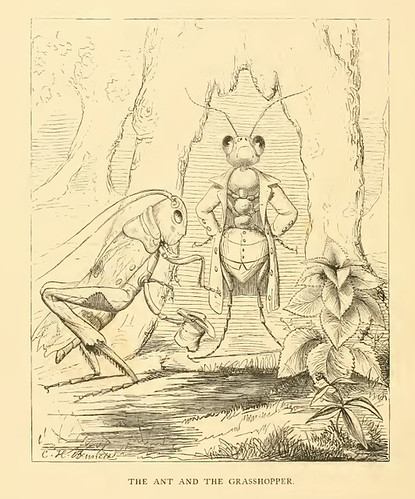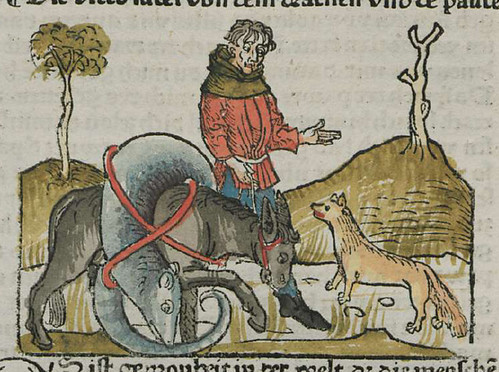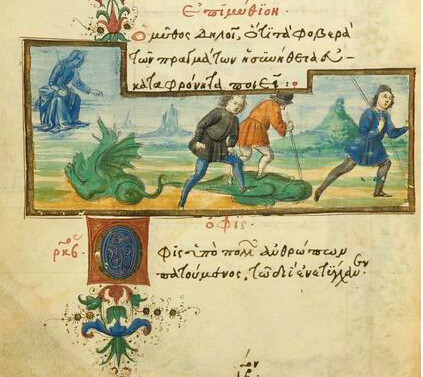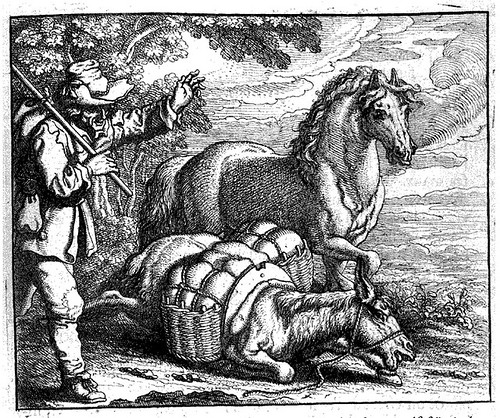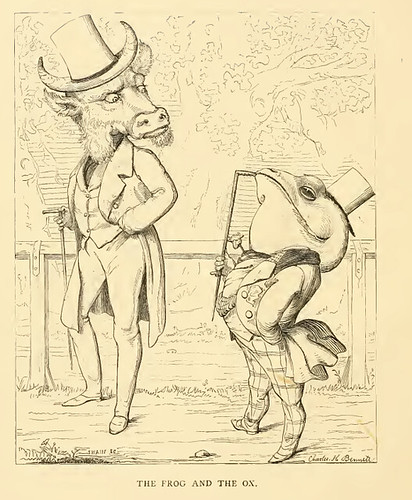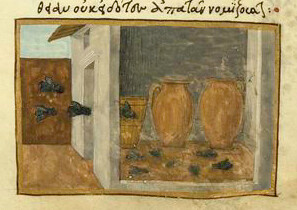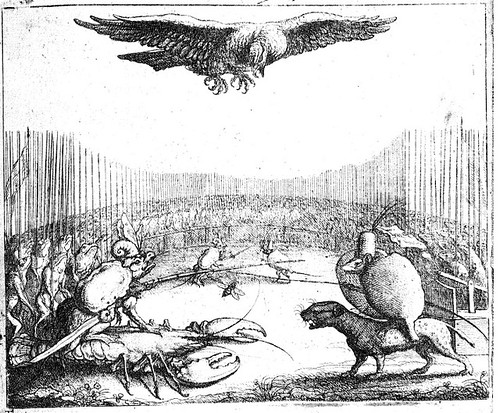HODIE: ante diem quartum Kalendas Apriles.
GOOGLE BOOKS: Today's Google Books are Busk's Roman Legends and Cantimpre's De Apibus.
MYTHS and LEGENDS: The art image for today's legend shows Cupid and Psyche; you can also see the legends for the current week listed together here.

TODAY'S DISTICHS and EMBLEMS: All the distichs come with vocabulary lists!
RHYMING DISTICHS: The two new Rhyming Distichs are Si qua sede sedes, Si qua sede sedes, et sit tibi commoda sedes, / Illa sede sede, nec ab illa sede recede; and Quid prodest homini, Quid prodest homini, si vivat saecula centum? / Cum moritur, vitam transisse putat quasi ventum.
CATO'S DISTICHS: The two new Cato Distichs are Fac tibi proponas, Fac tibi proponas, mortem non esse timendam: / Quae bona si non est, finis tamen illa malorum est; and Utere quaesitis, Utere quaesitis, sed ne videaris abuti: / Qui sua consumunt, cum deest, aliena sequuntur.
MARTIAL'S DISTICHS: The two new Martial Distichs are In tenebris luges, In tenebris luges amissum, Galla, maritum: / nam plorare pudet te, puto, Galla, virum; and Dulcia defecta, Dulcia defecta modulatur carmina lingua / cantator cycnus funeris ipse sui.
VERINUS DISTICHS: The two new distichs by Verinus are Sapientia et Caritas, Ut caritas dando, sic fit sapientia maior; / Clausa minor nobis, largius ergo dabis; and Pluribus Medicis Non Est Credenda Salus, Vis febri curari? Medicis ne crede salutem / Pluribus: unus enim sat bonus esse potest.
OWEN'S DISTICHS: The two new Owen epigrams, with Harvey's English versions, are Omnia Appetunt Bonum, Fallor, an a verbo nomen trahit optimus opto? / Optat enim sapiens optima quisque sibi; and Theologus: Politicus, Scire tuum nihil est, nisi te scire hoc sciat alter. / Si sciat hoc alter, scire tuum nihil est.
CAMERARIUS'S EMBLEMS: The two new emblems are Officiosa Aliis, Exitiosa Suis, Hostis aperte, ast clam falsus, nos perdit amicus, / Nec quisquam est structis tutus ab insidiis; and Sibi Canit Et Orbi, Ipsa suam celebrat sibi mens bene conscia mortem, / Ut solet herbiferum cygnus ad Eridanum.
ROLLENHAGEN'S EMBLEMS: The new emblem is Sic Transit Gloria Mundi, Cernite mortales, sic transit gloria mundi, / Noster honor cinis, et pulveris umbra sumus. You can see the things of the world going up in flames!

TODAY'S MOTTOES and PROVERBS:
3-WORD MOTTOES: Today's 3-word motto is Respicio sine luctu (English: I look back without grief).
3-WORD PROVERBS: Today's 3-word proverb is Spes vitam fovet (English: Hope nourishes life).
RHYMING PROVERBS: Today's proverb with rhyme is: Ex magna cena stomacho fit maxima poena (English: From a great dinner comes the greatest punishment for the stomach).
VULGATE VERSES: Today's verse is Praecordia fatui quasi rota carri (Sirach 33:5). For a translation, check out the polyglot Bible, in English, Hebrew, Latin and Greek, at the Sacred Texts Archive online.
ELIZABETHAN PROVERBS: Here is today's proverb commentary, this time by Taverner: Oportet remum ducere, qui didicit: He ought to helde the oore that hath learned it. That is to saye: Everye man must practise that science and facultie, that hath bene afore taught him. Let not the shomaker medle further then his shoes. Lette the ploughman talke of his plough.
TODAY'S FABLES and STORIES:
ANECDOTE OF THE DAY: Today's anecdote is Romulus et Remus, the twin sons of Rhea the Vestal Virgin.
FABULAE FACILES WIDGET: The fable from the Fabulae Faciles widget is Mercurius, Homo, et Formicae, one of my all-time favorite fables (this fable has a vocabulary list).
MILLE FABULAE WIDGET: The fable from the Mille Fabulae et Una widget is Mustela et Lima, the story of the fierce weasel and the metal file.
AESOP IN ENGLISH VERSE: Today's fable from the English verse widget is The Miser and His Gold, a story about a miser who needs to learn to let go.
MILLE FABULAE: The "chunk" of Mille Fabulae et Una today is Fable 651, Formica Alata, through Fable 660, Cicadae et Passerculi, including Formicae et Cicada , the famous story of the ants and the grasshopper: Formicae fruges per hiemem humectatas siccabant. Has adit cicada, esuriens, et rogat paululum cibi ut sibi impertiant. Cui illae, “Aestate,” inquiunt, “quaerere te oportuit.” “Non vacabat,” inquit cicada. “Quid faciebas igitur?” “Cantationibus operam dabam,” inquit. Tum illae, “Si cecinisti,” inquiunt, “aestate, hieme saltato.”
